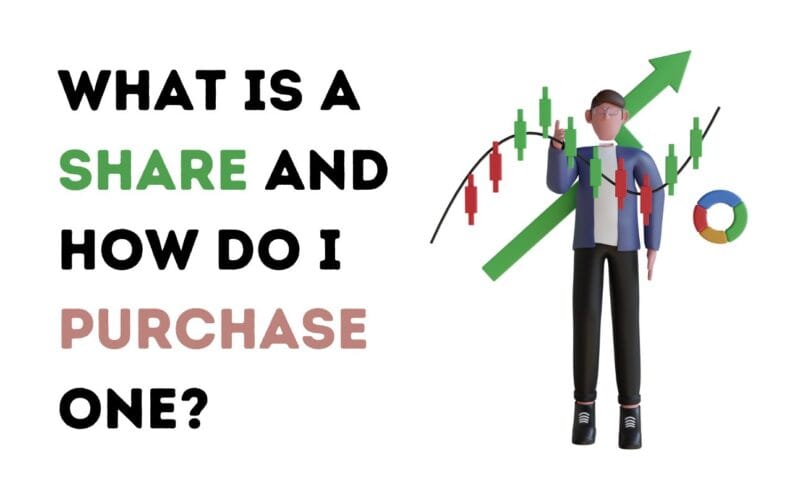The stock market can be a confusing place to navigate for people who are new to it. One of the most common questions asked is “What is a share and how do I go about buying one?” To put it simply, a share represents one unit of ownership in one of the over 2000 companies listed on the Australian Securities Exchange (ASX), which is more commonly called the stock market, or the stock exchange. When you purchase shares in one of these listed companies you are buying a small portion of that business.
So, the next question is “How do I buy shares?” If you want to engage in share investing you will need to utilize the services of a third-party stockbroker, or broker for short. Brokers are licensed by the Australian Securities and Investments Commission to help you complete your transaction.

That now brings us to the question “How do I make money from purchasing shares?” People attempt to profit from investing in shares by using one, or both of the following methods:
- Capital Growth – Also known as capital gains, this means that you make a profit when you buy a share at a lower price and sell it for a higher price. Investing in shares does come with risks, though, if the share’s price falls below the price you paid for it, and you sell at that lower price, you will take a loss!
- Dividends – These are an actual share of the company’s profits that are paid to the shareholders twice a year. Some companies don’t pay dividends, but those who do can use the practice to entice more people to buy their shares.
Like anything, becoming good at investing takes some research and practice. You will need to study up on the workings of the economy, exchange rates, interest rates, and government policies so that you can have a good understanding of how all of these different factors might affect a company’s financial performance. You can start by examining the very informative share investing education resources found on the ASX website.
Now it’s time to ask “How much money do I need to get started?” The ‘minimum marketable parcel of shares’ that the majority of brokers ask for from someone making their first trade is generally around $500. The broker then decides the price of additional purchases at their discretion. An investment of at least $2000 upfront to begin is suggested by the ASX, but you must decide for yourself within that framework. Once you have an understanding of all the involved costs, you will need to ask yourself “How much money am I willing to risk?
While there is something to be said for starting small, it is also important to realize that when purchasing or selling shares there is an attached brokerage fee incurred for every individual transaction added on to the share’s price. It is then the case that the less you invest, the greater the cost of the fees you will pay! It’s in your best interests to commit as much money as is feasible to make a profit.

So, you might be ready now to ask the question “What do I look for when considering buying shares?” You can get some clues from the company’s past financial performance into its stability, but the real driver of share prices is going to be the company’s future outlook. The next questions for you to ask are going to be:
- “Will there be opportunities for this company to grow?”
- “Will there continue to be a demand for this company’s goods and services in the future?”
- “Does the company have competitors? If so, who are they, and how strong are their positions?”
You can use a company’s annual report and its yearly and half-yearly financial results statements, as good sources of relevant information. All you have to do is search for the company’s name on the ASX website!
The ultimate question you must ask yourself, and think carefully about is “How much am I willing to lose?” You might want to establish a percentage stop of 15% for every company you purchase shares in. If the share price falls under your stop you must be committed to cutting your losses and selling them! If not, it could endanger your entire portfolio.
Trading shares is risky, but can be worth it!
See Also: The Ultimate Guide To Forex And CFD Trading Revealed










